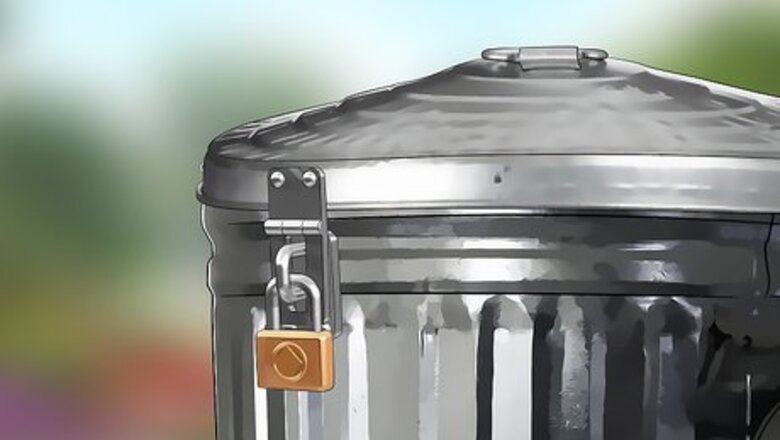
views
Purchasing Better Sealed Trash Containers
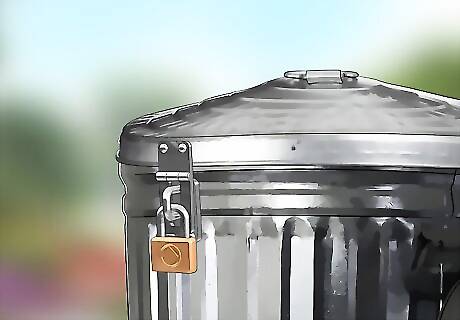
Choose trash containers that don't strongly hold odors which attract flies. Opt to upgrade old trash containers to newer versions that don't hold odor if you can. Some communities already provide the designated container to residents. But for others, the resident of the home has to provide the container on their own. When choosing plastic containers, look for ones with smoother interiors and number 5 plastic, which lets odor-causing juices slide off if your bags bust inside the can. Metal cans should be made of polished stainless steel or high quality aluminum. Maggots are attracted to organic material, so anything you can do to keep maggots from getting into your trash will help dramatically.
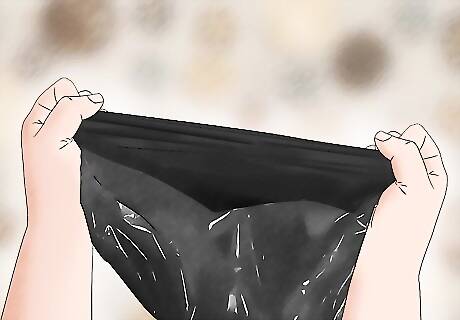
Choose better-quality garbage bags. If you can't upgrade the can, at least consider a better bag. Low-quality bags also can mean doubling you bags which is a waste of extra bags. Bad-quality bags that break, bust and lose handles are an open invitation to flies and other pests. Shop around for different brands to find a high-quality bag. There are bags with fragrances which can be irritating to some people and don't smell like the real source of the original fragrances. You can always find natural alternatives and make your own.
Eliminating Food Sources Inside the Trash

Learn the role that methane gas plays in maggot infestations. This gas is produced as organic aka living things rot. The female fly has a sense of smell for this gas and is attracted to it. This gas also gives off the stinky, musty smell we associate with rotten food or a rotten houseplant that has been over watered. To eliminate the risk of maggots you must eliminate the sources of methane gas/rot.
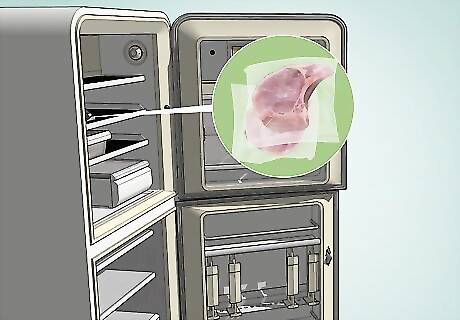
Limit the time meat scraps stay in the garbage. Female flies smell the rotting meat scraps in the garbage can and will flock to it. Make note of your community garbage truck day of the week. Try to dump your meat scraps the night or day before to limit the time the flies will smell it. If you can't use this timing, place all your meat scraps into a zip lock bag and freeze them until that day.
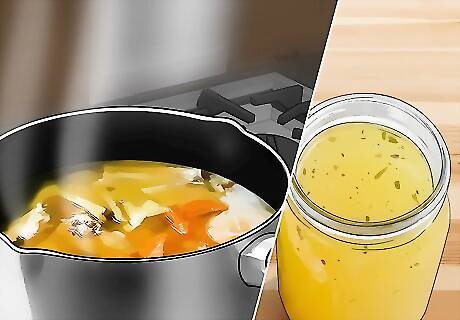
Save your raw meat trimmings to make delicious meat broths, sauces, and gravies. The bones and fat can be placed in a pot of water and boiled overnight and seasoned. This is also less expensive and more flavorful than prepared box broth in the store. The boiled bones and meat will have less meat smell thus attracting fewer flies.
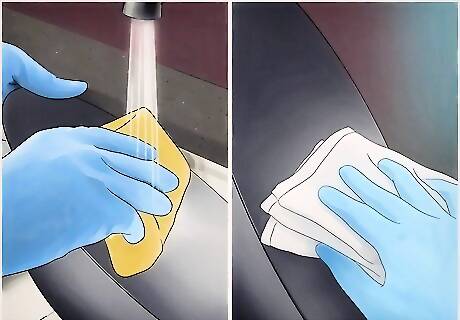
Rinse all the "meat juice" from bags and containers containing raw meat thoroughly. Maggots don't need much meat or meat juice food to develop into more flies, so cleaning up all meat juice and meat smells will starve them and prevent them from turning your trash can into a buffet. Use the same techniques when discarding tools and equipment used to cut meat. Also clean the rags used in cleaning up the meat juice and newspaper clippings used in preparation (keeping, say, fish scales neater instead of all over the place) with scalding hot water or in a tightly sealed bag or container before tossing out.
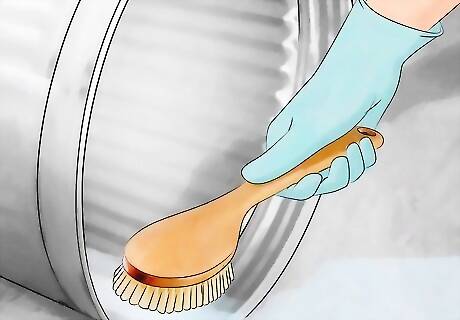
Rinse the can regularly. Not only is a smelly trash can a maggot magnet but a disgusting thing to smell for you and those who live in or visit your house. Rinse your trash can even if it's every 2 or 3 months with plain water during the warm seasons to keep the maggots away and the trash can smelling decent.
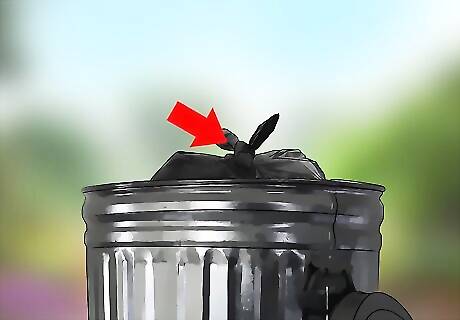
Dispose of animal and human waste trash correctly to avoid stable fly infestation. Place such trash in sealed containers. Kitty litter, feminine products, leftover pet food, and dirty diapers need to have their bags tightly closed so the stable fly can't smell the methane gas and want to lay eggs in the trash can. Same goes for manure and animal bedding including hay and straw. Don't put dead animals in the household trash either. Don't put rotting plant matter in the same can as the household trash. If you do you'll have triple trouble with stable flies, blow flies and houseflies. Put it in a separate landscape bag or in a sealed container before tossing it out into the trash can.

Learn which time of the year maggot season is. Cold weather doesn't bring maggots, but hot weather does. Don't worry about maggots if it's freezing outside because there won't be any flies to lie the eggs that hatch into maggots. If you live in a warmer climate, you'll have to be extra vigilant in controlling maggots.
Repelling Maggots Using Botanicals and Organic Methods

Drop a sprig of any sweet basil to the trash bag. Basil has a nice licorice-like smell that flies hate. Just a sniff of basil will cause many species of flies to get confused and act crazy. It also makes your trash smell nicer and doesn't have allergens like many perfumed bags or bag scents do. You can use dried basil, fresh basil or basil oil. Oregano and Lavender can have similar effects.
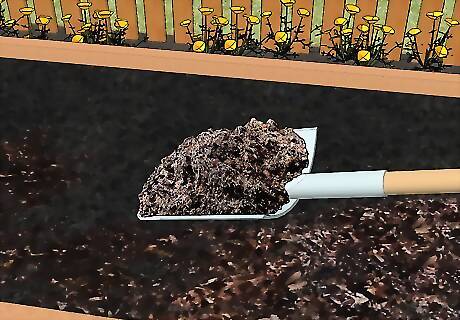
Throw in some evergreen clippings. Not enough of them to get noticed by the garbage collectors but a thin layer or grass, leaves, or conifer needles will reduce the smell of the meat in the trash can enough to keep the fly and maggot population inside that container in check. However, do not place clippings in the trash can abundantly unless the garbage pick-up is the next day, or else the rotting vegetation will attract stable flies.

Drench the trash can, meat containers, and bags with wintergreen alcohol. Wintergreen alcohol burns the maggots and has a very strong pleasant minty fragrance that many pests including flies don't like. You can also regularly rinse and clean the trash can with this substance to keep maggots and other pests out.
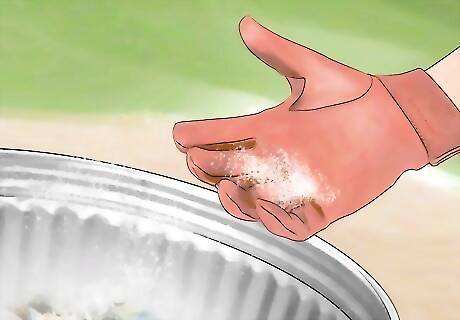
Sprinkle Diatomaceous Earth on the meat and in the trash can. This is a kind of limestone consisting of thousands of fossilized micro-organisms which have sharp edges that will cut the skin of any soft body insect and kill it.




















Comments
0 comment